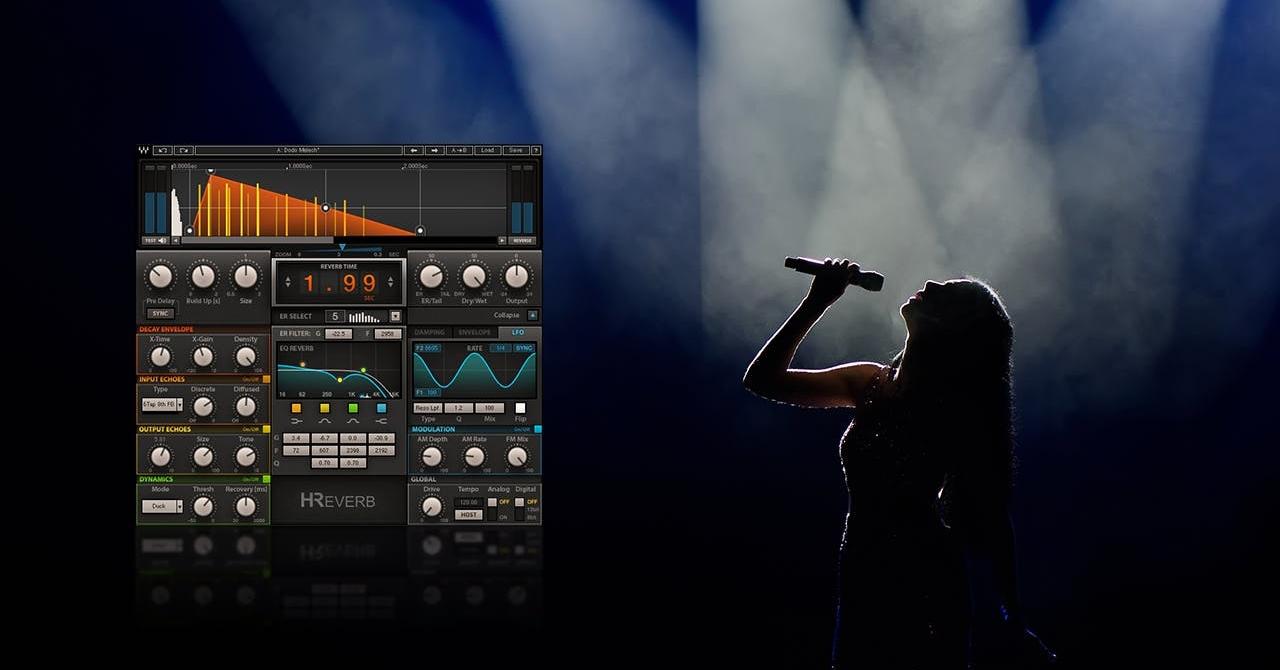Are you curious to know what is reverb in singing? You have come to the right place as I am going to tell you everything about reverb in singing in a very simple explanation. Without further discussion let’s begin to know what is reverb in singing?
Music is a harmonious blend of melody, rhythm, and emotion. One of the key elements that contribute to the immersive quality of a musical performance is reverb. Reverb, short for reverberation, is an audio effect that adds depth, space, and ambiance to sound recordings. In the realm of singing, reverb plays a vital role in enhancing vocal performances and creating a rich auditory experience. In this blog, we’ll dive into the concept of reverb in singing, how it works, and its impact on the overall sonic quality.
What Is Reverb In Singing?
Reverb is a natural acoustic phenomenon that occurs when sound waves reflect off surfaces in an environment. When you sing in a large, reflective space like a cathedral or a bathroom, you might notice that your voice lingers and blends with the reflections from the walls, ceilings, and other surfaces. Reverb in singing recreates this effect artificially by digitally manipulating the sound, adding a sense of space and envelopment to the vocal performance.
How Reverb Works?
In modern music production, reverb is achieved using digital audio processing. Here’s a simplified breakdown of how reverb works:
- Early Reflections: These are the initial reflections of sound waves off surfaces. They create the sense of space and dimension in the sound.
- Late Reflections/Decay: These are the subsequent reflections that occur after the initial reflections. They contribute to the reverberation tail, gradually fading away over time.
- Diffusion: Diffusion refers to the scattering of sound waves as they bounce off multiple surfaces. It contributes to the complexity and realism of the reverb effect.
Impact On Singing
Reverb in singing serves several crucial purposes:
- Depth and Space: Reverb adds a sense of depth, making the vocal sound less flat and more three-dimensional. It creates the illusion of the singer performing in a particular acoustic environment.
- Emotional Impact: Reverb can enhance the emotional impact of a song. A soft, intimate ballad might benefit from a more intimate, close reverb, while a powerful anthem could use a grander, spacious reverb to evoke a sense of grandeur.
- Blend and Smoothness: Reverb helps smooth out imperfections in a vocal performance. It can mask slight variations in pitch or tone and create a more cohesive and polished sound.
- Cohesiveness: In a mix, reverb can tie different elements together. If the vocals are recorded in a dry environment and other instruments have more natural reverb, adding a touch of reverb to the vocals can make them blend harmoniously with the rest of the track.
Conclusion
Reverb in singing is a powerful tool that enhances the emotional impact, spatial presence, and overall sonic quality of vocal performances. It adds an ethereal quality that draws listeners into the music, creating an immersive experience that resonates deeply. As singers and music producers continue to explore the intricacies of sound, reverb remains a cornerstone of audio production, shaping the way we experience music in all its richness and depth.
For more information like this visit Weji.
FAQ
What Does Reverb Do To Vocals?
Reverb will fill the sound of the vocals out nicely. It will give them more fullness and sustain, and will have a more “natural” sound to them. BUT reverb will also push the vocals back in the mix.
What Is The Difference Between Echo And Reverb In Singing?
The Difference Between Reverb and Echo
They are both time-based audio effects resulting from the reflection of sound on hard surfaces. The difference between reverb and echo lies in time. Echo is a long reflection of sound on a far hard surface, while reverb has a way shorter reflection time.
What Is The Best Vocal Reverb?
top 9 Reverb Plugins For Vocals In 2023
- Valhalla VintageVerb.
- FabFilter Pro-R.
- Waves H-Reverb.
- Soundtoys Little Plate.
- AudioEase Altiverb.
- UAD Pure Plate.
- IZotope NeoVerb.
- LiquidSonics Seventh Heaven.
Why Do Singers Like Reverb?
Why use vocal reverb? Vocal reverb adds audible space, distance, and dimension to a vocal, whereas a vocal without reverb sounds like it’s in a void. Reverb sounds great on vocals because it smears a vocal with reflections, masking subtle imperfections in a performance.
What is reverb in music?
